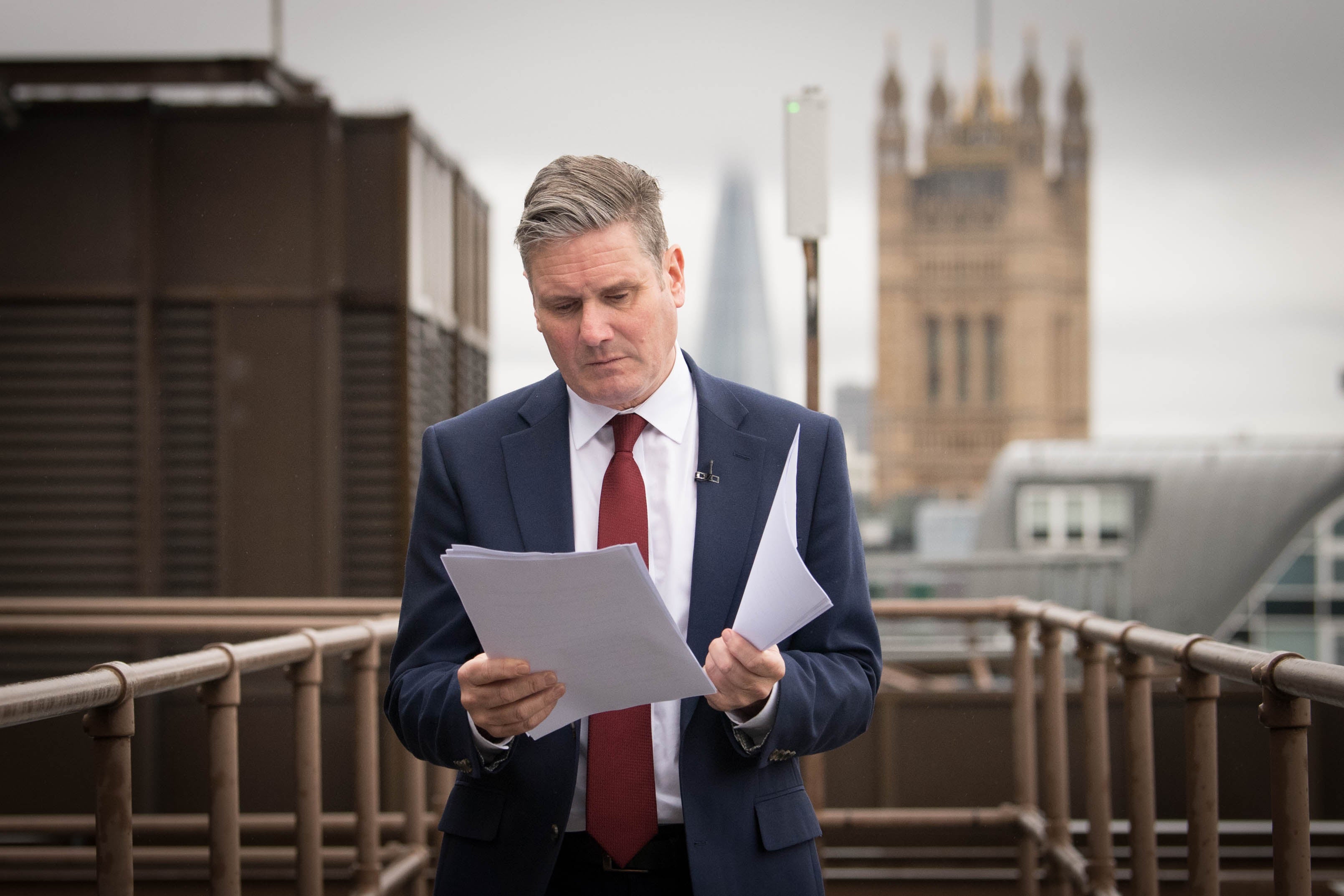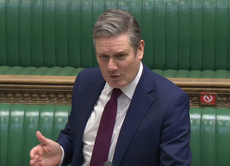The Independent's journalism is supported by our readers. When you purchase through links on our site, we may earn commission.
Keir Starmer’s big economy speech sounds awfully like business – or politics – as usual
The Labour leader is struggling to make government and opposition sound different enough


Your support helps us to tell the story
From reproductive rights to climate change to Big Tech, The Independent is on the ground when the story is developing. Whether it's investigating the financials of Elon Musk's pro-Trump PAC or producing our latest documentary, 'The A Word', which shines a light on the American women fighting for reproductive rights, we know how important it is to parse out the facts from the messaging.
At such a critical moment in US history, we need reporters on the ground. Your donation allows us to keep sending journalists to speak to both sides of the story.
The Independent is trusted by Americans across the entire political spectrum. And unlike many other quality news outlets, we choose not to lock Americans out of our reporting and analysis with paywalls. We believe quality journalism should be available to everyone, paid for by those who can afford it.
Your support makes all the difference.You know there is little in a speech if the best headline the Labour Party can put on it in advance is that Keir Starmer will declare that there can be “no return to business as usual”. Summarising a speech in a press release is a good test of what essential message the speaker is trying to get across.
“No return to business as usual” is an Ed Miliband era phrase and it means the square root of nothing very much. It means: “I am going to make a speech criticising the government for this and that, and when I have finished I will read over it again and try to sum it up in a single line and I will fail.”
What does it mean to demand “no return to business as usual”? A lot of people would quite like to return to business as usual, because it meant having a job. But that is not the part of “business as usual” that Starmer means, of course.
He means that people don’t want to go back to the bad things about what went before; as, after the Second World War, people still remembered the Depression and how heartless the Conservatives were in dealing with it. “I believe people are now looking for more from their government – like they were after the Second World War,” says Starmer, in one of the extracts from the speech issued in advance.
I can imagine the poor press officer charged with drafting the press release seizing on this: “What about ‘no return to the failed Conservative ideology that weakened the foundations of society’? We can have that as the second line.”
Which is fine as far as it goes, although it depends crucially on the voters associating the Conservatives with “austerity” and believing that the Tory leader wants to return to it. This is an approach that the Labour Party has already tried, twice.
It worked remarkably well in 2017, much to the amazement even of Jeremy Corbyn and his inner team, who had no idea that Theresa May would threaten to take old people’s homes away from them or scold nurses on live TV for thinking there was a “magic money tree”. And it worked remarkably badly in 2019, when Boris Johnson not only changed the subject to getting Brexit done but offered a positively New Labour cornucopia of public spending on schools, hospitals and the police.
That it should work well again in 2024 seems more an article of faith than the product of deep analysis. Starmer’s argument in the speech is that the coronavirus has “exposed” the “insecure and unequal economy” created by “the mistakes of the last decade”, and that the people will be yearning for “a future that is going to look utterly unlike the past”.
Well, maybe. But Johnson has done well at pretending that the nine years of Tory government before he became prime minister had nothing to do with him. If people want a different future – preferably after they have got back to earning money as usual – they may think they are as likely to get it from him as from Starmer.
Especially as the Labour leader starts setting out his alternative vision by declaring: “Under my leadership, Labour’s priority will always be financial responsibility.” Who could disagree with that, but also, who could think that this was “utterly unlike the past”?
He sets out some specific policies on which he differs from the government in order to back up his claim that the budget on 3 March will be “a fork in the road”. Completely coincidentally, they all involve spending more public money. This could be reconciled with “financial responsibility”, especially at a time of negative real interest rates, but the paragraph of explanation is unfortunately missing from the pre-issued extracts.
What is worse is that the list starts with not cutting universal credit, so when Rishi Sunak extends the emergency £20 a week for another six months Labour will be stranded.
The other three policy differences are free school meals, more support for the self-employed and a pay rise for key workers. These are all worthy objectives, and could be paid for by higher borrowing in the short term as a way of boosting the economy through the post-coronavirus recession.
However, in the medium term such higher current spending (as opposed to investment) would need, under a government that believed in “financial responsibility”, to be paid for out of higher taxes. That paragraph also seems to be missing from the preview.
What is in the extracts issued to the press are some stirring but disconnected sentences. The people of this country “want a government that can ensure people don’t have to leave their home town to have a chance of getting a good job”. That, I admit, would not be business, or politics, as usual. But it would need something quite dramatic to make it happen.
Starmer is banking on us thinking that coronavirus has changed our views of “what is necessary and what is possible”, but instead of specifics we get a windy declaration that the future belongs to those who “embrace the change that’s coming in science, technology and work”. Harold Wilson said something similar.
Finally, Starmer says: “None of this is possible if you don’t believe in the power of good government and the need to create a new partnership between an active state and enterprising business.” Sounds like an endorsement of the government’s vaccination programme.
And his conclusion fails just as badly to make government and opposition sound different: “Despite the scale of the moment, all we can expect from this government is more of the same. A roadmap to yesterday.” A roadmap to yesterday: that sounds awfully like a description of Starmer’s speech.


Join our commenting forum
Join thought-provoking conversations, follow other Independent readers and see their replies
Comments